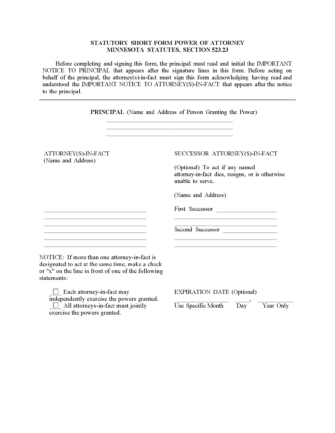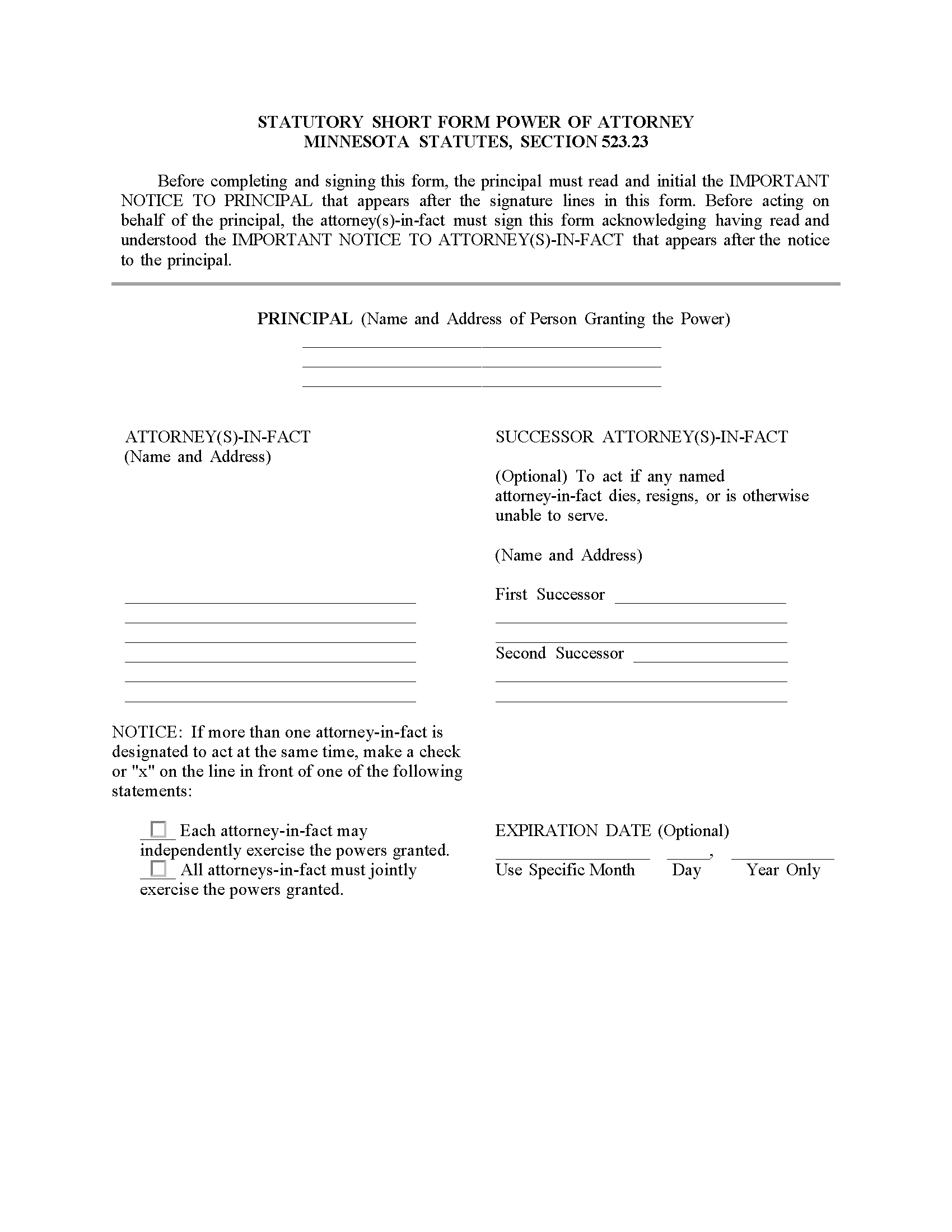Signing Requirements
According to Minnesota law, a power of attorney only needs to be notarized if another person signed on behalf of the principal.[1] However, the principal’s signature should be notarized to strengthen the validity of the document.[2]
Power of Attorney (Preview)
Legal Definition
A power of attorney is durable if it contains language such as “This power of attorney shall not be affected by incapacity or incompetence of the principal” or “This power of attorney shall become effective upon the incapacity or incompetence of the principal,” or similar words showing the intent of the principal that the authority conferred is exercisable notwithstanding the principal’s later incapacity or incompetence.[3]

